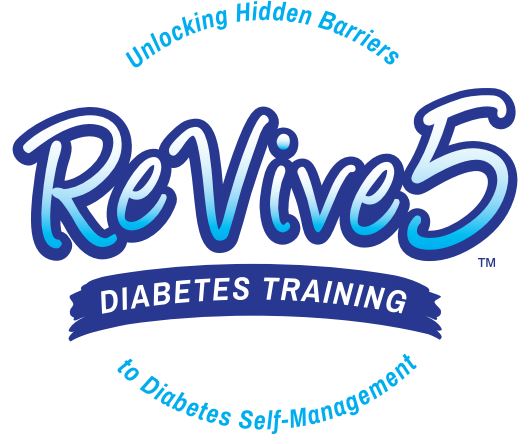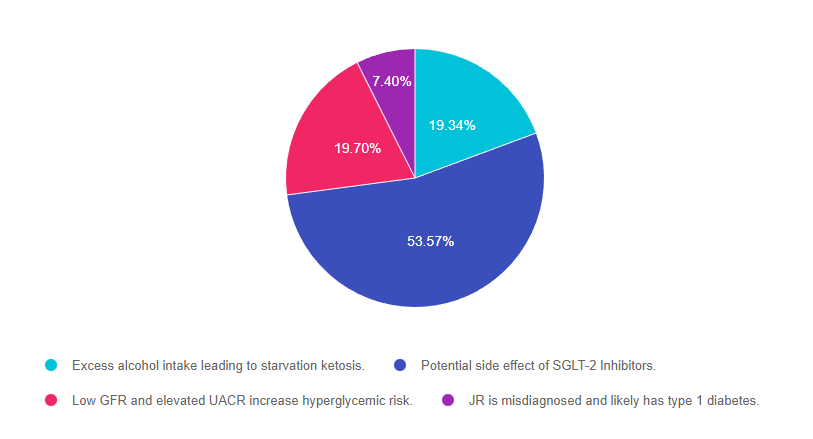New Tubeless Insulin Delivery System Approved for Toddlers
The FDA just authorized the Insulet Omnipod 5 tubeless insulin delivery system for pediatrics with type 1 diabetes starting as young as age 2. This remarkable moment marks the availability of the world’s first tubeless, wearable insulin delivery system for toddlers.
The Omnipod 5 received FDA approval earlier this year for integration with the Dexcom G6 continuous glucose monitor for adults and kids with type 1, but Insulet also petitioned the FDA to approve this technology for toddlers.
First Tubeless Hybrid Closed Loop System
This first tubeless hybrid closed loop system to receive FDA authorization includes the Omnipod 5, Dexcom G6 CGM and a phone app or controller to manage insulin delivery and monitor glucose levels. The Omnipod holds three days worth of insulin in a pod delivery device without the need for tubing, which can be helpful for active toddlers. No calibration or fingersticks are required.
As a hybrid loop system, the Omnipod and Dexcom are continuously data sharing, so most of the insulin delivery is automated. However, users can make needed adjustments, deliver bolus insulin and easily share data with the smartphone app or Ominpod 5 Controller.
Promising Outcome Data
Based on a study presented at the annual ADA Scientific Session, children with type 1 diabetes experienced a drop in A1C levels from a baseline of 7.4% to 6.9% and they remained at this improved A1C level for one year into the study. Time in range also increased from 57% at baseline to 68% after using the Omnipod 5 for three months. In addition, there were no reported cases of DKA or severe hypoglycemia. For more information on the latest in insulin pumps and CGMs, please join our Virtual Conference with technology expert Diana Issacs. In addition to explaining the technology, she provides an awesome “show and tell”.
Lila Grace Moss wears Omnipod on Runway
On a related note, I would like to give recognition to the courageous Lila Grace Moss, who lives with type 1 diabetes. On a recent runway show, she did not shy away from wearing her Omnipod as she modeled the latest fashion styles with camera’s clicking and hundreds of audience members.
Social media took note and many instagram followers thanked Lila for her bold and brave statement.
Thanks Lila!
Want to learn more about Technology and Diabetes Care? Join us for our
Virtual DiabetesEd Training Conference
30+ CEs
Airs October 12-14th, 2022
Join us LIVE for this Virtual Training Conference and enjoy a sense of community!
Whether you are new to diabetes or a seasoned expert, you’ll benefit from this virtual conference with the latest research plus critical content that you can immediately apply to your clinical practice.
Download Course Flyer | Download Schedule
If you are seeking a state-of-the-art review of current diabetes care, this course is for you. Our team has been fine-tuning this course for over fifteen years, and we know what you need. This program can also be a great addition to your CDCES or BC-ADM exam study plan.
Team of expert faculty includes:
- Diana Isaacs, PharmD, BCPS, BC-ADM, BCACP, CDCES – Educator of the Year, 2020
- Coach Beverly Thomassian, RN, MPH, CDCES, BC-ADM
- Ashley LaBrier, MS, RD, CDCES, Diabetes Program Coordinator
Two Registration Options
Don’t worry if you can’t make it live. Your registration guarantees access to the recorded version in the Online University.
All hours earned count toward your CDCES Accreditation Information
Sign up for Diabetes Blog Bytes – we post one daily Blog Byte from Monday to Friday. And of course, Tuesday is our Question of the Week. It’s Informative and FREE! Sign up below!
The use of DES products does not guarantee the successful passage of the CDCES exam. CBDCE does not endorse any preparatory or review materials for the CDCES exam, except for those published by CBDCE.
Question of Week | JT is Carb limiting to 30gms a day. Best Response?

JT has type 1 diabetes and tells you they are avoiding carbs and trying to eat less than 30gms of carbs daily. JT is 76 years old, with an A1C of 6.6% and a BMI of 22.
What is the best response?
- Suggest JT try to eat a minimum of 30- 45 gms of carb per meal.
- Gently suggest to JT that they might have disordered eating.
- Explore JT’s reasons for avoiding carbs.
- Provide a review of carb portions and refer JT to an RD/RDN.
Click Here to Test your Knowledge
Want to learn more about this question? Join our NEW
ReVive 5 Diabetes Training Program

Whether you are a novice or an expert in providing diabetes care, we invite you to attend this exciting training program that provides the essential steps to address diabetes distress combined with an innovative approach to glucose management that will revolutionize your practice.
“ReVive 5” breathes new life into our relationship with diabetes, bringing a fresh perspective to both the person with diabetes and the provider.
By releasing old habits that no longer serve us, we have the opportunity to create a new life tool kit toolkit in partnership with the person living with diabetes.
The ReVive 5 program is built on international research study results and will revolutionize your approach to diabetes self-management education.
Join our Team of Experts
Team of Experts:
ReVive 5 is taught by a team of 3 Interdisciplinary Experts:
- Lawrence Fisher, Ph.D., ABPP, Professor Emeritus, UCSF
- Susan Guzman, PhD
- Beverly Thomassian, RN, MPH, CDCES, BC-ADM
Accredited Training Program:
- 15.0 CEs – Includes the 7-hour ReVive 5 Training Program, Certificate, and 5 FREE bonus courses to supplement content.
- Free Quarterly ReVive 5 Connect – connect with the instructors to help with problem-solving for an hour four times a year (see dates below).
- A comprehensive set of assessment tools, educational materials, log sheets, and resources.
Dates and Times for ReVive Virtual Training
- For your convenience, we have combined the 4 sessions into 2 half days. Same great content.
- July 19 and 26th from 9 am to 12:30 pm PST. Space is limited, so save your space today!
Don’t worry if you can’t make it live. Your registration guarantees access to the recorded version in the Online University.
All hours earned count toward your CDCES Accreditation Information
Sign up for Diabetes Blog Bytes – we post one daily Blog Byte from Monday to Friday. And of course, Tuesday is our Question of the Week. It’s Informative and FREE! Sign up below!
The use of DES products does not guarantee the successful passage of the CDCES exam. CBDCE does not endorse any preparatory or review materials for the CDCES exam, except for those published by CBDCE.
Join us in Congratulating our Flower Scholarship Recipients!
We are excited to announce our DiabetesEd Flower Scholarship Recipients!

The Diabetes Educator Flower Scholarship is awarded to 2 individuals each year. This scholarship awards two deserving applicants the opportunity to attend our DiabetesEd Specialist Virtual Conference on October 12-14, 2022 free of charge. This gift of recognition is donated by a generous diabetes nurse specialist who believes that the health of our future depends on supporting diabetes educators in providing care in underserved communities.
The Flower Scholarship’s vision is to increase diversity in the diabetes education workforce by supporting diabetes nurse educators who come from underserved communities.
It is always a very difficult decision for all of the judges. We read each application in careful detail considering the applicant’s impact on underserved communities, building bridges to improve access, volunteerism, financial need and readiness to take the CDCES exam. Read more about Ms. Owens and Ms. Hillman below.
Our “Flower” recipients are Janeka Owens & Patricia Hillman
Congratulations from all of us at Diabetes Education Services!

Janeka Owens is a recipient of our “Flower Scholarship” because of her belief that “Diversity and representation matter in diabetes education”. She turns this belief into action in her work as a Nurse Educator in a hospital and in an outpatient Population Health Department in Pensacola, Florida. In addition to providing individual education, Janeka also provides group classes to both insured and uninsured individuals. She assists with hospital discharges and care management for individuals experiencing food and medical insecurity and makes sure they are connected with community health centers to receive ongoing care. Janeka goes on to say that, “representation is important to improve outcomes, build stronger communities and overall restore trust in health care”. Thank you, Janeka, for being a trusted health care provider and advocating to improve access to diabetes self-management and support programs for your community members.

Patricia Hillman is also a Flower Scholarship Recipient. She provides diabetes care at a federally qualified health center in an underserved community. Many of the people she serves have no insurance and struggle to manage their diabetes. Patricia works directly with her Maternal/Fetal physician to co-manage people during pregnancy and often follows up with high-risk individuals on weekends. Many of the clients she serves, have limited resources, and lack insurance coverage. Patricia goes out her way to make sure they have needed resources and that they can easily access her with questions and concerns. Patricia has created a library of information in English, Spanish and Creole to meet community needs and create bridges of understanding. She often accompanies those who have not yet learned English to the pharmacy to assist with language barriers and ensure they get the supplies they need. Patricia plans to apply the knowledge garnered from the course to continue empowering her community.
Congratulations to Janeka and Patricia. You both are Flower Scholarship Recipients!
Want to Join Janeka and Patricia at our Virtual DiabetesEd Training Conference?
Enroll Now!
Airs October 12-14th, 2022
Join us LIVE for this Virtual Training Conference and enjoy a sense of community!
Whether you are new to diabetes or a seasoned expert, you’ll benefit from this virtual conference with the latest research plus critical content that you can immediately apply to your clinical practice.
Download Course Flyer | Download Schedule
If you are seeking a state-of-the-art review of current diabetes care, this course is for you. Our team has been fine-tuning this course for over fifteen years, and we know what you need. This program can also be a great addition to your CDCES or BC-ADM exam study plan.
Team of expert faculty includes:
- Diana Isaacs, PharmD, BCPS, BC-ADM, BCACP, CDCES – Educator of the Year, 2020
- Coach Beverly Thomassian, RN, MPH, CDCES, BC-ADM
- Ashley LaBrier, MS, RD, CDCES, Diabetes Program Coordinator
Two Registration Options
Don’t worry if you can’t make it live. Your registration guarantees access to the recorded version in the Online University.
All hours earned count toward your CDCES Accreditation Information
Sign up for Diabetes Blog Bytes – we post one daily Blog Byte from Monday to Friday. And of course, Tuesday is our Question of the Week. It’s Informative and FREE! Sign up below!
The use of DES products does not guarantee the successful passage of the CDCES exam. CBDCE does not endorse any preparatory or review materials for the CDCES exam, except for those published by CBDCE.
Can 8 Minutes of Movement Really Boost Joy?

Without reading any scientific papers, we intuitively know that we just feel better after moving. Humans are designed for motion interspersed with periods of rest. However, while activities like yoga, walking, or swimming may give us a boost of energy, are there specific exercises that will actually make you feel happy?
What activities not only crank up our heart rate, improve muscle strength and flexibility while also bringing us feelings of JOY?
Researchers have identified specific movements that exist across cultures that inspire joy.
What Coach Bev Discovered after doing the Joy Workout
I did my own study with an “n” of 1. I rated my joy feelings on a scale of 1-10 (and pulse) before doing these seven activities that each last for one minute. My joy rating was about a 3 before and it easily jumped up to an 8 during the movements and I couldn’t help but spontaneously smile. Plus, the glow continued afterward. Those 8 minutes of joy movement gave me the extra mental boost I needed to finish this blog post on a busy Monday morning,
Try it for yourself. Commit eight minutes out of your day to try this simple body joy workout. Invite your friends and family to compare their “joy” before and after doing these movements.
The American Diabetes Association recommends that people with prediabetes and diabetes get up and move every half hour. This joy workout offers a starting point to begin a new habit of moving more. Of course, individuals may need to modify some of the moves for safety and comfort. If doing it all at once is too much, a person could spread the workout throughout the day, doing one move at each half hour break. Even turning on the music for a few minutes and spontaneously dancing invokes joy and improves health.
You are invited to choose your favorite beat or just enjoy the music on the Joy Workout Video (from Newsweek article).
Here are the 7 Joy Movements.
- Reaching your arms up and breathe
- Swaying hips, arms and legs side to side
- Bouncing in rhythmic movement to a beat
- Shaking hands, arms, legs and body
- Jump for joy, bouncing on feet and lifting arms up
- Celebrate by taking up space with arms stretched out and little jumps
- Freestyle to music which can include spinning like a dancer
- Take a bow for doing it!
Consider this as an experiment and an invitation to rediscover the joy of movement. There are plenty of other science-backed ways to improve your mood with exercise and these exercises may just be the start.
Join Ashley LaBrier, RD, MS, CDCES Exercise & Nutrition Expert as she provides insights and strategies to promote healthy lifestyle modification.
Join us on October 12-14th, 2022
Virtual DiabetesEd Training Conference
30+ CEs
Join us LIVE for this Virtual Training Conference and enjoy a sense of community!
Whether you are new to diabetes or a seasoned expert, you’ll benefit from this virtual conference with the latest research plus critical content that you can immediately apply to your clinical practice.
Download Course Flyer | Download Schedule
If you are seeking a state-of-the-art review of current diabetes care, this course is for you. Our team has been fine-tuning this course for over fifteen years, and we know what you need. This program can also be a great addition to your CDCES or BC-ADM exam study plan.
Team of expert faculty includes:
- Diana Isaacs, PharmD, BCPS, BC-ADM, BCACP, CDCES – Educator of the Year, 2020
- Coach Beverly Thomassian, RN, MPH, CDCES, BC-ADM
- Ashley LaBrier, MS, RD, CDCES, Diabetes Program Coordinator
Two Registration Options
Don’t worry if you can’t make it live. Your registration guarantees access to the recorded version in the Online University.
All hours earned count toward your CDCES Accreditation Information
Sign up for Diabetes Blog Bytes – we post one daily Blog Byte from Monday to Friday. And of course, Tuesday is our Question of the Week. It’s Informative and FREE! Sign up below!
The use of DES products does not guarantee the successful passage of the CDCES exam. CBDCE does not endorse any preparatory or review materials for the CDCES exam, except for those published by CBDCE.
Rationale of the Week | What explains JR’s sudden DKA?

For last week’s practice question, we quizzed test takers on DKA. Only 53% of respondents chose the best answer, which indicates that there was some uncertainty. We want to clarify and share this important information, so you can pass it on to people living with diabetes and your colleagues, plus prepare for exam success!
Before we start though, if you don’t want any spoilers and haven’t tried the question yet, you can answer it below: Answer Question
Question:
JR, a 67-year-old with type 2 diabetes for seven years and an A1C of 9.7% was started on empagliflozin 10mg two weeks ago. Other labs include a GFR of 49 and a UACR of 34 mg/g. Other diabetes medications include glucotrol 10mg twice daily and sitagliptin 100mg daily. JR sometimes has a few shot’s of whiskey before bed, especially if they had a stressful day. JR’s partner calls you in a panic and says JR is admitted to the hospital in DKA.
What is the most likely explanation?
Answer Choices:
- Excess alcohol intake leading to starvation ketosis
- Potential side effect of SGLT-2 Inhibitors
- Low GFR and elevated UACR increase hyperglycemic risk
- JR is misdiagnosed and likely has type 1 diabetes

Getting to the Best Answer
Answer 1 is incorrect. 19.34% chose this answer, “Excess alcohol intake leading to starvation ketosis.” Although this answer is tempting, it is not the best answer. According to the vignette, “JR sometimes has a few shot’s of whiskey before bed, especially if they had a stressful day”. The American Diabetes Association states that women can have 1 drink a day and men can have up to 2 drinks a day. Given that JR only seems to drink a few shots when stressed out, this would not be considered excess alcohol intake associated with malnutrition.
Answer 2 is correct. 53.57% of you chose this answer, “Potential side effect of SGLT-2 Inhibitors.” YES, great job choosing the best answer. The SGLT’s have been associated with a rare but serious adverse drug effect called euglycemic diabetic ketoacidosis (DKA). This seems to be more likely if the person is on insulin and decreased their insulin dose in response to lower blood sugars from the addition of a SGLT-2. However, DKA can also happen to people started on SGLT-2s who are not taking insulin. People taking this class of medication need to be aware of the signs of DKA and appropriate action.
Answer 3 is incorrect. 19.70% of respondents chose this answer, “Low GFR and elevated UACR increase hyperglycemic risk.” With a GFR of 49 and a UACR of 34 mg/g, JR is a perfect candidate for the SGLT-2 Inhibitor class of medication. This class of medication preserves renal function while lowering A1C. JR’s GFR is well above the cut-off point and JR is not at increased risk of hyperglycemia.
Finally, Answer 4 is incorrect. 7.40% chose this answer, “JR is misdiagnosed and likely has type 1 diabetes.” Although it is possible that this is true, it is unlikely. JR has a 7 year history of type 2 with a moderately increased A1C on oral medications only. If JR had type 1 diabetes, the A1C would certainly be more elevated, since glucotrol 20mg and sitagliptin 100mg daily, would not be effective without a semi-functional pancreas. JR might have latent autoimmune diabetes in adults, so checking the GAD, ICA and IAA for autoimmunity could be enlightening.
For a listing of diabetes medications, side effects and considerations, please download our PocketCards
Want to learn more about this topic?
Dr. Diana Isaacs is providing a fantastic pharmacology update.
Virtual DiabetesEd Training Conference | 30+ CEs
Airs October 12-14th, 2022
Join us LIVE for this Virtual Training Conference and enjoy a sense of community!
Whether you are new to diabetes or a seasoned expert, you’ll benefit from this virtual conference with the latest research plus critical content that you can immediately apply to your clinical practice.
Download Course Flyer | Download Schedule
If you are seeking a state-of-the-art review of current diabetes care, this course is for you. Our team has been fine-tuning this course for over fifteen years, and we know what you need. This program can also be a great addition to your CDCES or BC-ADM exam study plan.
Team of expert faculty includes:
- Diana Isaacs, PharmD, BCPS, BC-ADM, BCACP, CDCES – Educator of the Year, 2020
- Coach Beverly Thomassian, RN, MPH, CDCES, BC-ADM
- Ashley LaBrier, MS, RD, CDCES, Diabetes Program Coordinator
Two Registration Options
Don’t worry if you can’t make it live. Your registration guarantees access to the recorded version in the Online University.
All hours earned count toward your CDCES Accreditation Information
Sign up for Diabetes Blog Bytes – we post one daily Blog Byte from Monday to Friday. And of course, Tuesday is our Question of the Week. It’s Informative and FREE! Sign up below!
The use of DES products does not guarantee the successful passage of the CDCES exam. CBDCE does not endorse any preparatory or review materials for the CDCES exam, except for those published by CBDCE.
You’re Invited | Type 2 Intensive Workshop & CDCES Prep Webinar

Type 2 Intensive Workshop | Earn 2.0 CEs
This course provides a detailed overview of the pathophysiology of type 2 diabetes, prevention strategies, and cardiovascular risk reduction. In addition, we highlight type 2 treatment approaches including nutrition, activity, oral and injectables medications plus screening and treatment guidelines for micro and macrovascular disease. Through case studies and discussion, we highlight strategies to focus on a person-centered approach along with attention to psychosocial care for people living with diabetes.
Objectives:
- Discuss the current epidemiology of type 2 diabetes.
- Describe the classification, terminology & diagnostic criteria for diabetes.
- Identify the eight pathophysiologic defects associated with the ominous octet.
- Describe evidence and strategies to prevent type 2 diabetes.
- State strategies to implement a person-centered approach to those with diabetes and more…
Learn the Steps to Become a CDCES!
Prep for CDCES FREE Webinar – Sept 22nd
Starting your journey? We recommend watching our FREE Preparing for CDCES Exam Webinar!

This course will transform your test anxiety into calm self-confidence and test-taking readiness.
Preparing for the CDCES Exam Webinar Topics
- Exam requirement updates for 2022.
- Exam eligibility and test format
- Strategies to succeed along with a review of study tips and test-taking tactics.
- We will review sample test questions and the reasoning behind choosing the right answers.
- Learn how to focus your time and prepare to take the CDCES Exam. We provide plenty of sample test questions and test-taking tips!
Sign up for Diabetes Blog Bytes – we post one daily Blog Byte from Monday to Friday. And of course, Tuesday is our Question of the Week. It’s Informative and FREE! Sign up below!
The use of DES products does not guarantee the successful passage of the CDCES exam. CBDCE does not endorse any preparatory or review materials for the CDCES exam, except for those published by CBDCE.
Question of Week | Best action before starting tirzepatide (Mounjaro)?

AR is 36 years old with type 2 diabetes and a BMI of over 40. Current A1C 7.9%, UACR less than 30, and GFR more than 60. Current diabetes medications include metformin, sitagliptin, and empagliflozin at maximum doses. AR is prescribed the new dual incretin tirzepatide (Mounjaro) to help improve glucose levels and support weight loss.
Before starting tirzepatide (Mounjaro), what action do you recommend to the provider?
- Repeat the UACR and GFR to verify kidney function.
- Stop the sitagliptin.
- Decrease metformin dose to prevent hypoglycemia.
- Evaluate thyroid function.
Click Here to Test your Knowledge
New Injectable – “TwinCretin” on Printed PocketCards
We have just added this novel, first in class, dual incretin hormone therapy, Tirzepatide (Mounjaro), to our printed version of our Diabetes Medication PocketCard.
This new twin therapy includes not only a GLP-1 Receptor Agonist, but also a Glucose-dependent insulinotropic polypeptide (GIP), which magnifies the therapeutic effectiveness. The SURPASS studies indicate that study participants experienced an A1C drop of up to 2.5% and weight loss of up to 10kg or more.
Want to learn more about Diabetes Medications?
Virtual DiabetesEd Training Conference | 30+ CEs
Airs October 12-14th, 2022
Join us LIVE for this Virtual Training Conference and enjoy a sense of community!
Whether you are new to diabetes or a seasoned expert, you’ll benefit from this virtual conference with the latest research plus critical content that you can immediately apply to your clinical practice.
Download Course Flyer | Download Schedule
If you are seeking a state-of-the-art review of current diabetes care, this course is for you. Our team has been fine-tuning this course for over fifteen years, and we know what you need. This program can also be a great addition to your CDCES or BC-ADM exam study plan.
Team of expert faculty includes:
- Diana Isaacs, PharmD, BCPS, BC-ADM, BCACP, CDCES – Educator of the Year, 2020
- Coach Beverly Thomassian, RN, MPH, CDCES, BC-ADM
- Ashley LaBrier, MS, RD, CDCES, Diabetes Program Coordinator
Two Registration Options
Don’t worry if you can’t make it live. Your registration guarantees access to the recorded version in the Online University.
All hours earned count toward your CDCES Accreditation Information
Sign up for Diabetes Blog Bytes – we post one daily Blog Byte from Monday to Friday. And of course, Tuesday is our Question of the Week. It’s Informative and FREE! Sign up below!
The use of DES products does not guarantee the successful passage of the CDCES exam. CBDCE does not endorse any preparatory or review materials for the CDCES exam, except for those published by CBDCE.
Certification Help – 2 FREE Webinars to Prep for CDCES or BC-ADM
Coach Beverly and Bryanna are here to Help
If you are considering taking the CDCES or BC-ADM Exam, we have great news. We are offering 2 different webinars that provide you with the study prep information and tools you need to propel across the finish line.
As health care professionals, we value your limited study time by offering evidence-based content carefully crafted for exam success with direct application to your clinical practice. Please let us know if we can be of any help on your journey!
Warmly, Coach Beverly and Bryanna
Preparing for BC-ADM FREE Webinar
September 20th at 11:30am PST

Register for BC-ADM Webinar | September 20, 2022
BC-ADM 2022 Note Taking Handout
We hope you can join us live. But, if not, no worries.
We will send you a link to the recorded version within 24 hours of airing.
Preparing for the CDCES Exam FREE Webinar
September 22 at 11:30am PST

This course will transform your test anxiety into calm self-confidence and test-taking readiness.
Join Coach Bev Live – September 22, 2022 at 11:30am
2022 PowerPoint Note-Taking Handouts
We hope you can join us live. But, if not, no worries.
We will send you a link to the recorded version within 24 hours of airing.
Instructor: Beverly Thomassian RN, MPH, CDCES, BC-ADM is a working educator who has passed her CDCES Exam 6 times and first earned her BC-ADM credential 20 years ago. She is a nationally recognized diabetes expert for over 25 years.
Virtual and Online Certification Education Options
3 Day Intensive: Virtual DiabetesEd Specialist Conference |Oct. 12-14th
This Virtual Training Conference streams LIVE in October. Invite your friends to enjoy a group discount. Plus, save on travel costs and enjoy conference interactivity through demonstrations, games and Q&A sessions. Our Deluxe Conference Package includes a 100+ page printed syllabus, Med PocketCards, ADA Standards and swag. This advanced level course features 3 expert speakers who translate the ADA Standards, Meds, Technology, Complications, Nutrition Therapy and more. Join us to get recharged or to prepare for certification.
Self-Study Online Certification Bundles:
- CDCES Exam Prep Bundle
- BC-ADM Exam Prep Bundle
These courses are designed to walk participants through the knowledge needed to succeed at either the CDCES or BC-ADM certification exams. Viewed at your convenience and pace, each module contains poll questions, case studies and real life situations that prepare participants for clinical situations as well as the exams. Students consistently state that our online courses not only helped them achieve certification, they also provided valuable insights into providing effective diabetes care. See more info below.
All hours earned count toward your CDCES Accreditation Information
Free Certification Resources
Sign up for Diabetes Blog Bytes – we post one daily Blog Byte from Monday to Friday. And of course, Tuesday is our Question of the Week. It’s Informative and FREE! Sign up below!
The use of DES products does not guarantee the successful passage of the CDCES exam. CBDCE does not endorse any preparatory or review materials for the CDCES exam, except for those published by CBDCE.









